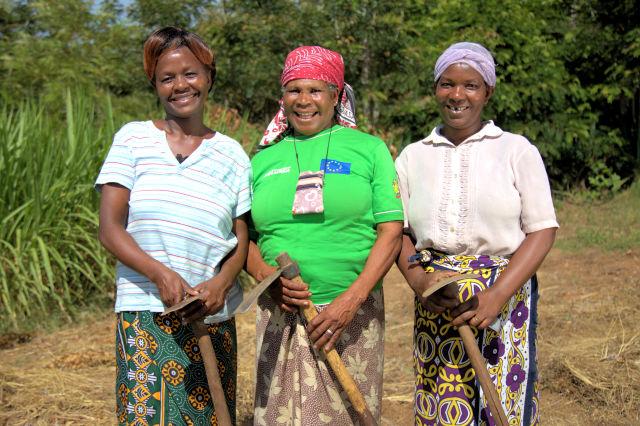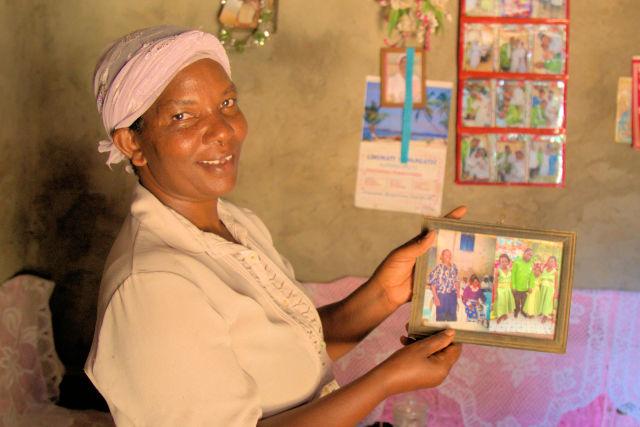Like many parents around the world this September, I packed my children off to school at the start of the new term, and felt grateful in the knowledge that they are receiving the education they need to reach their full potential.
But across rural Africa many families are not so lucky, with parents facing an ongoing struggle to send their children to school. The cost of uniforms, books and pencils can be prohibitively expensive for those on a small income, while the fees associated with secondary school and further education mean that a tragic number of children are forced to drop out, often leaving them trapped in a cycle of poverty.
 For smallholder farmers, building up a successful farming business is crucial in enabling them to earn enough to afford the costs associated with sending their children to school.
For smallholder farmers, building up a successful farming business is crucial in enabling them to earn enough to afford the costs associated with sending their children to school.
As Farm Africa's Media Relations Manager, it is my job to raise awareness about our work and to share the stories of the farmers we support.
Recently I had the privilege of meeting Syokau Patrick, a farmer and mother of six children who lives in Kitui County, a semi-arid region of Kenya which has been badly affected by drought.
Two-thirds of people in Kitui County rely on the land for their food and income. But in recent years unreliable rains have made it hard for farmers like Syokau to grow enough to earn the income they need to pay for their children's education.
Syokau explains: "I feel frustrated when the rains don't come because it means I won't be able to harvest anything and must buy food. When planting a crop you have to buy the seeds and pay for labour so I feel a great loss if things die."
Determined to give her children the education she missed out on, Syokau
came together with others in her community to set up a farmers' group which

is now receiving training and support to help them grow more, sell more and sell for more.
Syokau and her fellow farmers have learnt about growing drought-tolerant crops such as sorghum, using high-quality seeds that produce greater yields and are more resistant to disease. In addition, they are being supported to adopt water conservation techniques like digging trenches. All this is helping them to increase the amount they produce, which in turn means they will have more available to sell.
Syokau's farmers group has also been trained in table banking, in which members come together on a regular basis to pay in small amounts of money. They then take turns accessing low interest loans that are paid out of the group's combined savings, providing members with important access to finance that they can use to invest in their farms or pay for things like their children's education.
Syokau's training has changed the way she thinks about her farm: "Farm Africa has taught us that farming can be a business. Through table banking I have been able to borrow money and have used the loan to buy the inputs Farm Africa has suggested. This has helped me to grow my crops and increase my yield. I have been able to sell the surplus for income that I can now use to pay for my children's education and reinvest in my farm."
Stories like Syokau's show that Farm Africa's work is about much more than just crops - a prosperous farm can mean education for Syokau's children. And as the planting season begins in Kitui, I hope that this year's harvest will give many other parents the financial freedom to wave their children off to school and get the education they need for a brighter future.
By Tara Carey, Farm Africa's Media Relations Manager


 For smallholder farmers, building up a successful farming business is crucial in enabling them to earn enough to afford the costs associated with sending their children to school.
For smallholder farmers, building up a successful farming business is crucial in enabling them to earn enough to afford the costs associated with sending their children to school.











